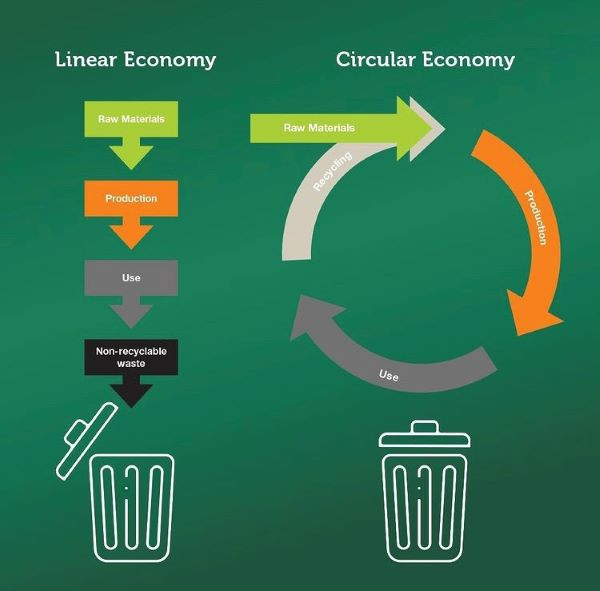
The Five Keys to a Circular Business
29th Sep 2020
The circular economy paradigm has been gaining traction recently, especially as the pandemic has revealed the vulnerability and challenges of a disrupted global supply chain. Today, many businesses are looking to solve supply chain issues and become a more sustainable, circular business.

Key areas in sustainable business
A circular economy is one in which materials are put back into the resource pool at the end of their life and cycled back into the economy. Some businesses have identified five key areas that lead to a circular business model while also minimising costs, increasing customer satisfaction, mitigating risk, growing profits, and enabling resilience.
Responsible Design
Businesses can design out waste and pollution by finding the right balance between sustainability and practicality in their products.
Responsible Sourcing and Marketplace
Businesses should source their materials sustainably by being aware of where they are buying from, and through this create value in their products and services.
Responsible Production
By only making what they need, a business can minimise waste. By focussing on making their products sustainably, they can ensure anything they produce will not harm the environment.
Responsible Consumption
Businesses need to promote responsible consumption – encouraging customers to only buy what they need, and to ensure they know what they are buying.
Resource Recovery and Reuse
If a business supplies compostable cups, they need to have an end-of-life disposal option handy. This means providing organics bins or informing customers where they might find one. This also means advertising on the business about their sustainability initiatives and responsible disposal of their products. In addition, businesses need to promote use of recovered resources – there is no point composting if no one is buying the resulting compost, or recycling if there is no demand for recycled materials. This circular business model starts with the business.
Information taken from InsideSAP Read about the need for certainty on recycled plastics, and why we love single-use plastic bans, on our blog.
Planet Friendly Packaging acknowledges the traditional custodians of the land on which we work. Our thoughts go out to everyone affected by COVID-19. Stay safe.

